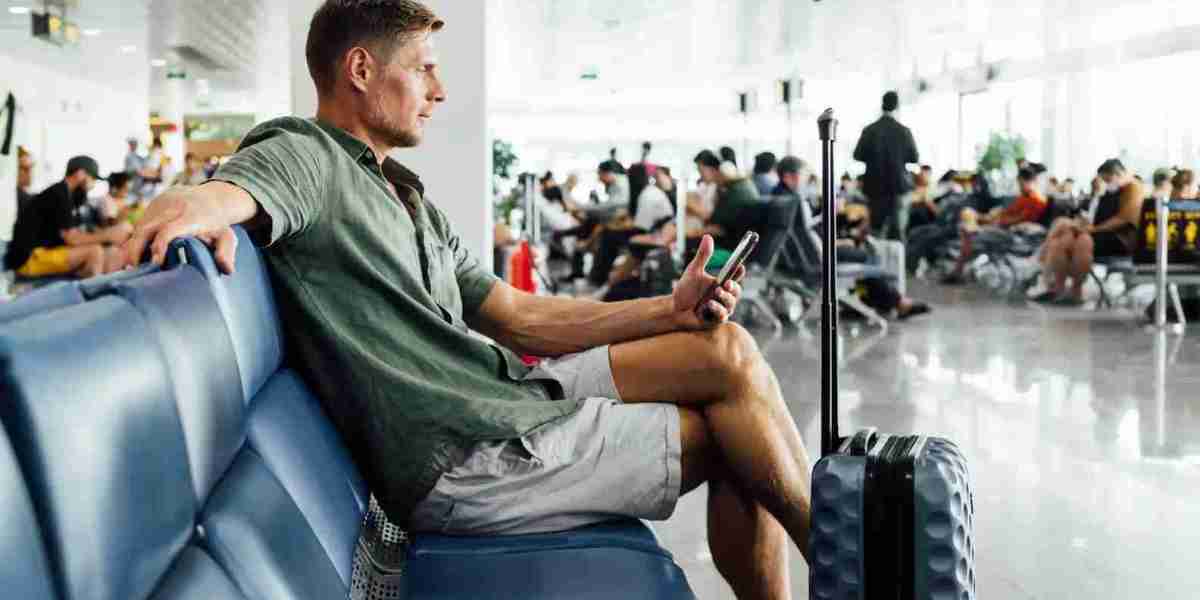But the the travel hack I'm most hesitant to try is one that goes viral semi-regularly. Called skiplagging, the "hack" is more like a gamble, because airlines really don't like it. When airlines like Delta, Southwest, and American catch passengers who are skiplagging they will go so far as to ban you. There have even been a few lawsuits regarding the practice, with airlines going so far as to sue people who use the hack.
So, is it worth attempting in the name of saving a bit of money? Here's everything you need to know about the trend.
What is skiplagging?
Skipplagging—also referred to as hidden city ticketing—is when you book a flight that has a connection—but your true destination is that connection city. You simply never arrive for the second portion of your planned journey. For example, say you are looking to get from Denver to Las Vegas. You notice that there are actually flights from Denver to Los Angeles that are cheaper than a direct flight to Vegas—and there's actually a connection in Vegas for the LA flight.
So, by skiplagging, you'll book the flight from Denver to LA, which is cheaper than the flight from Denver to Vegas. When you arrive in Vegas for your flight connection to LA, you simply don't get on the flight.
This hack can save you anywhere from $50 to a couple hundred dollars, depending on your destination.
How do you skiplag?
There are a few ways to do it. The company Skiplagged is an online booking service that reveals "hidden-city" flights, which allow you to find skiplag routes that you may not be able to find on your own.
"Our unique algorithm shows the cheapest regular flights and hidden-city flights faster than any other site. Hidden-city flights refer to itineraries with multiple legs where the traveler exits prior to the final destination," the Skiplagged website explains. With Skiplagged, you can only book one-way flights, because airlines will cancel return flights for passengers who miss any part of their departing flight.
Right now, the site is offering flights between Miami and Las Vegas for $52, marked down from $73, or between Boston to San Francisco for $133, marked down from $237.
You can also plan your own skiplag, using flight booking sites like Google Flights or CheapAir.com—it will likely just take a bit more time and guesswork to determine which routes are cheaper than a direct flight. This method still won't let you book a roundtrip flight—and you still have to factor in each airline's policy on missing legs of your flight.
Why are airlines against skiplagging?
Of all the viral travel hacks I've seen recently, skiplagging seems to be one of the most effective at actually saving travelers money—when it works. It also feels like one of the most lawless hacks. The idea of missing a flight for any reason makes me nervous; missing a flight on purpose feels almost sacrilegious. And airlines want travelers to feel that way.
All the way back in 2021, American Airlines sent a memo to employees announcing that it would monitor and crack down on customers who were skiplagging.
"We've always prohibited these types of booking practices, and have recently made some updates to our tools to more clearly display an alert when one of these practices may have occurred," an American Airlines rep told Travel Pulse in 2021.
Way back in 2014, United Airlines actually sued Skiplagged CEO Aktarer Zaman, when Zaman was just 22 years old, for $75,000 of lost revenue. Zaman and Skiplagged ultimately walked away from the lawsuit victorious. Now, United has specific language in its contract of carriage strictly prohibiting the practice of "Hidden Cities Ticketing, Point Beyond Ticketing, Throwaway Ticketing, or Back-to-Back Ticketing." (See Rule 6, sections J and K.)
Anyone caught using any version of skiplagging or "any practice that United believes, in its sole discretion, is exploitative, abusive or that manipulates/bypasses/overrides United’s fare and ticket rules," could face the following actions by United:
- Invalidated tickets
- Cancellation of any remaining portion of your ticket
- Confiscation of any unused flight ticket coupons
- Permanent ban or refusal to board unless the difference in ticket prices is collected before boarding
- Deletion of miles and points related to your Frequent Flyer account
- Charged a delivery fee or penalty fee for you and your luggage
- Legal action
The following airlines have strictly prohibited skiplagging, or hidden city ticketing:
- American Airlines
- Alaska Airlines
- Delta Air Lines
- Southwest Airlines
- United Airlines
Does skiplagging work?
Even with airlines adding barriers to make it harder to skiplag, it's still doable, depending on your risk tolerance. You'll need to book one-way tickets, only bring carry-on luggage (checked luggage would end up in the final destination, not the layover city), and don't make it a frequent practice at the same airline—you are more likely to get caught if you use this trick repeatedly. This is a good way to get some of your bucket list travel done, add in some spontaneous trips, or find the best price for a trip you have obligations for (like a wedding or trip back home).
"Booking unusual itineraries could raise red flags, and someone could flag and monitor you while you fly," Henry Harteveldt, a travel analyst, told the BBC. "At some point, you may get a letter or corporate security meeting you at the gate. The airlines' intention is to intimidate and recover what they perceive to be lost revenue."
Looking for more travel tips?
Whether you need help sneaking weed onto a plane, finding an airport where you can sign up for PreCheck without an appointment, or making sure you’re getting everything you’re entitled to when your flight is canceled, we’ve got you covered. Keep reading for up-to-date travel hacks and all the travel news you need to help you plan your next big adventure.



